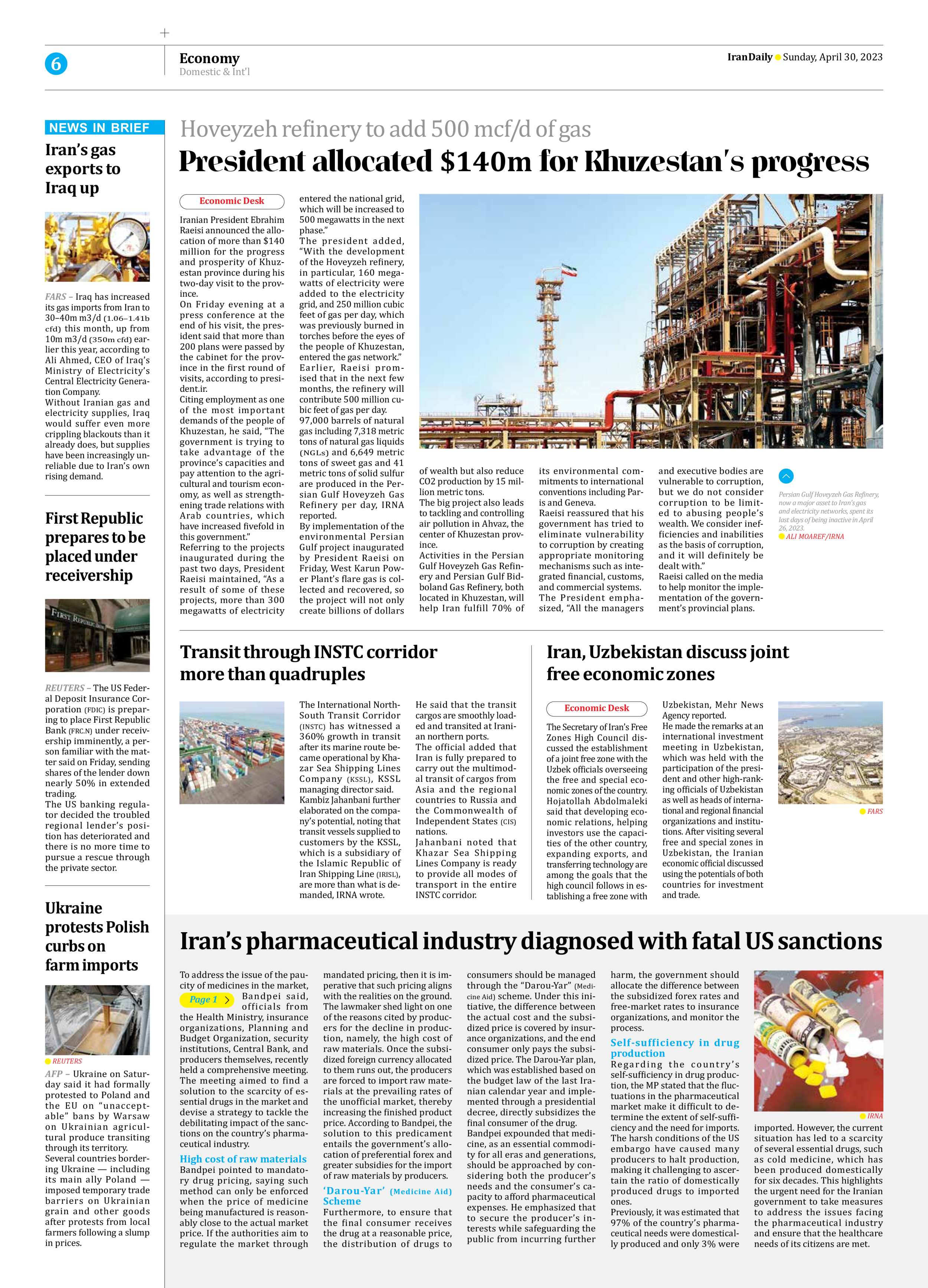
Hoveyzeh refinery to add 500 mcf d of gas
President allocated $140m for Khuzestan’s progress
Iranian President Ebrahim Raeisi announced the allocation of more than $140 million for the progress and prosperity of Khuzestan province during his two-day visit to the province.
On Friday evening at a press conference at the end of his visit, the president said that more than 200 plans were passed by the cabinet for the province in the first round of visits, according to president.ir.
Citing employment as one of the most important demands of the people of Khuzestan, he said, “The government is trying to take advantage of the province’s capacities and pay attention to the agricultural and tourism economy, as well as strengthening trade relations with Arab countries, which have increased fivefold in this government.”
Referring to the projects inaugurated during the past two days, President Raeisi maintained, “As a result of some of these projects, more than 300 megawatts of electricity entered the national grid, which will be increased to 500 megawatts in the next phase.”
The president added, “With the development of the Hoveyzeh refinery, in particular, 160 megawatts of electricity were added to the electricity grid, and 250 million cubic feet of gas per day, which was previously burned in torches before the eyes of the people of Khuzestan, entered the gas network.”
Earlier, Raeisi promised that in the next few months, the refinery will contribute 500 million cubic feet of gas per day.
97,000 barrels of natural gas including 7,318 metric tons of natural gas liquids (NGLs) and 6,649 metric tons of sweet gas and 41 metric tons of solid sulfur are produced in the Persian Gulf Hoveyzeh Gas Refinery per day, IRNA reported.
By implementation of the environmental Persian Gulf project inaugurated by President Raeisi on Friday, West Karun Power Plant’s flare gas is collected and recovered, so the project will not only create billions of dollars of wealth but also reduce CO2 production by 15 million metric tons.
The big project also leads to tackling and controlling air pollution in Ahvaz, the center of Khuzestan province.
Activities in the Persian Gulf Hoveyzeh Gas Refinery and Persian Gulf Bidboland Gas Refinery, both located in Khuzestan, will help Iran fulfill 70% of its environmental commitments to international conventions including Paris and Geneva.
Raeisi reassured that his government has tried to eliminate vulnerability to corruption by creating appropriate monitoring mechanisms such as integrated financial, customs, and commercial systems.
The President emphasized, “All the managers and executive bodies are vulnerable to corruption, but we do not consider corruption to be limited to abusing people’s wealth. We consider inefficiencies and inabilities as the basis of corruption, and it will definitely be dealt with.”
Raeisi called on the media to help monitor the implementation of the government’s provincial plans.







